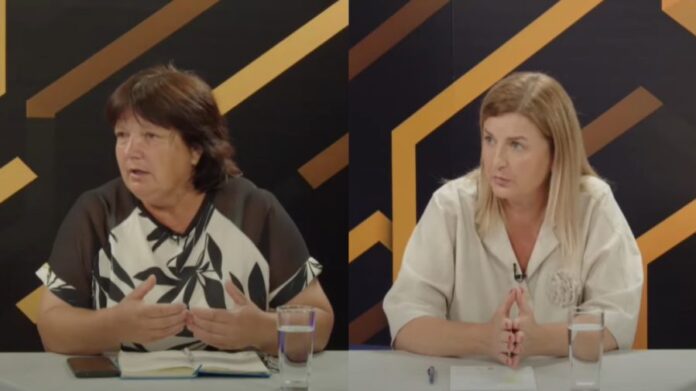As the country advances in joining the European Union, the villages of Moldova are preparing to become genuine European communities. Currently, European funds continue to support different community projects aimed at modernizing rural infrastructure and improving the quality of life for residents. The “European Village” program is crucial in this transition, providing resources for developing water and sewer systems, improving roads, and ensuring access to quality water.
These initiatives bring tangible benefits to rural communities. They also contribute to bringing Moldova closer to European standards, strengthening ties with the EU, and opening new opportunities for the future. Mayors Maria Manoli and Viorica Beregoi, the show’s guests hosted by journalist Valentina Ursu, “Realitatea Te Priveste” share this opinion.
European support for the village of Zubresti began ten years ago, right after Maria Manoli successfully assumed the role of mayor.
“We try to explain to people through examples and our actions that to build a road you need to apply for a project and have a funding program. Recently, we announced the results of the ‘European Village’ Program, bringing great joy and fulfilling long-awaited expectations for all localities. We all want to live well in a country where there is peace, the level of well-being increases, people’s rights are respected, and they fulfill their obligations. This direction is the European one. A good part of the citizens choose the path of development and the orientation of the state based on what happens at the local level.”
“We are also partners of the ‘My Community’ program. We thank the program for contributing to our professional growth, and we received financial support to implement a project. It is important for funders when people prioritize an issue. Out of three issues presented to a vote, I was pleasantly surprised when people chose to renovate the Cultural House. People understood that if we don’t invest now, we will lose an asset that is very important to us,” stated Maria Manoli.
”The construction of the aqueduct and the sewage system are two of the most expensive projects for the commune of Truseni. The locality applied for and won two projects under the European Village Program. It is a concrete example of how investments in infrastructure can transform people’s lives,” says Mayor Viorica Beregoi.
“We talk with people and know their exact needs, and that’s where we started solving problems. Speaking with them before running for office, everyone said that the only thing they are interested in now is that, at a distance of 4-5 km from Chisinau, we don’t have any public institution connected, the issue of the aqueduct, and the access road. When we drafted the budget for our locality, we focused on priorities and directed most of our revenues toward that direction – the sewage system. Currently, work is being done on 8 kilometers of sewage, which means that by the end of the year, we will connect around 400 – 500 households to the sewage network.”
”Things had stagnated and deteriorated for over 20 years. Now, inhabitants know they can come to the town hall anytime; all doors are open, and we always discuss matters with the people. This way, the perception of the local public administration changes. We also debate what can add value to us, such as the direction we need to take. In the European Union, there is peace; where there is peace, there are investors where there are investors, there is development and income (…) on our own, we do not have the resources needed to solve such costly problems,” stated the mayor of Truseni.
FOR THE MOST IMPORTANT NEWS, FOLLOW US ON TWITTER!
We remind you that citizens from 612 localities in the Republic of Moldova will benefit from projects implemented under the national program ”European Village,” edition 2024.
The national local development program ”European Village,” launched in 2022, is part of the National Development Strategy ”European Moldova” and the National Regional Development Strategy for 2022-2028. It provides financial support from the state to local public authorities for modernizing local infrastructure, following the example of the European Community.


